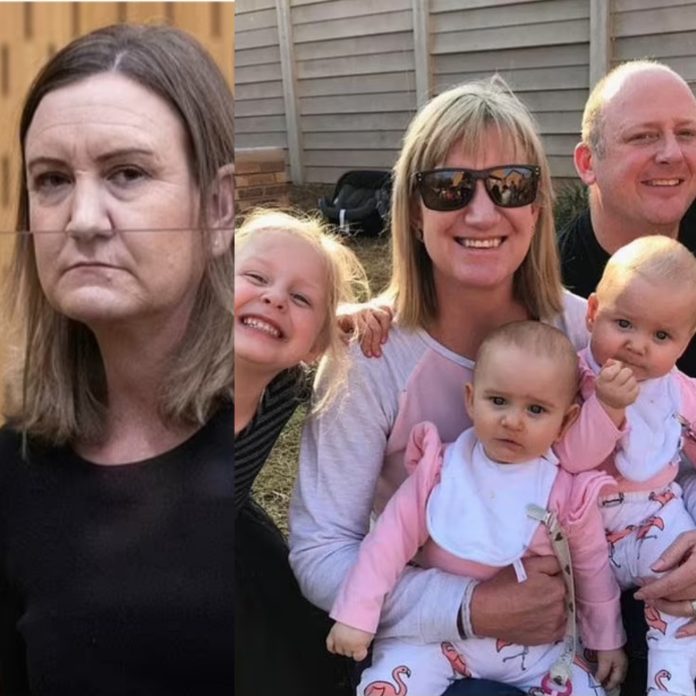Lauren Dickason, aged 41, was convicted in August of last year for the murder of her two-year-old twin daughters, Maya and Karla, and their six-year-old sister Lianè at their residence in Timaru, New Zealand, on September 16, 2021.
Initially, Dickason attempted to end her children’s lives using zip ties before suffocating them with pillows. She then placed them in their beds, covered them with blankets, and made an unsuccessful attempt on her own life.
Although she admitted to causing the deaths of the girls, she pleaded not guilty to murder, citing post-partum depression and mental disturbance during the incident. The judge decided that Dickason would be confined to a mental health facility for 18 years—six years for each daughter—without a minimum prison term.
Justice Cameron Mander stated in court that imposing a life sentence with a minimum parole period of 17 years or more would be excessively harsh, as reported by the NZ Herald. Instead, he handed down three concurrent determinate sentences of 18 years each, without specifying a minimum term of imprisonment.
Judge Mander also ordered that Dickason be detained in a mental health facility for compulsory treatment until she is deemed mentally stable enough to be transferred to prison.
Dickason will be eligible for parole after serving six years of her sentence. Through her legal representative, she accepted responsibility for the deaths and expressed regret for the pain caused to her husband, Graham.
She said: “I loved Liané, Maya and Karla with all my heart. No apology will ever be enough, and words will seem hollow to many. I want people to know our girls brought me so much joy and were the centre of my world. I am horrified by my actions, and the pain, distress and trauma I have caused everyone who loved them. Like many others, I miss them every single day.”
Dickason, a former doctor, said she wanted people to know about the risks of post-partum depression and that she was dedicated to improving her mental health.
She added: “We urge other families to look for and act on unhealthy signs. We urge women experiencing the symptoms of post-partum depression to tell the ones they love. This pain and heartbreak cannot happen to any other families.”
Judge Mander noted that Dickason had battled with mental health issues for much of her life, receiving a diagnosis of major depressive disorder during her teenage years. Her condition deteriorated following the births of her daughters, leading her to seek treatment for post-natal depression from a psychiatrist.
According to Judge Mander, in the months leading up to the tragic event, Dickason began experiencing intrusive thoughts about harming her children.
Following her murder trial in August, Judge Mander reviewed three expert reports on Dickason’s current mental health status. These reports indicated that she acknowledged the impact of her actions on others and expressed regret and remorse for the deaths of her three daughters. Some experts also observed that Dickason continued to be affected by mental disorders.
Judge Mander acknowledged Mr. Dickason, who is also a doctor, for his dignified and resilient demeanor in the face of what he described as an “unimaginable loss.”
He said: “Sentencing a parent for the murder of three children is unprecedented in New Zealand. The children were vulnerable because of their age, but they were entirely dependent upon you as the mother who they look to for care and protection. They would have viewed you as an unconditional source of safety and love… The ending represents a fundamental breach of trust.”













